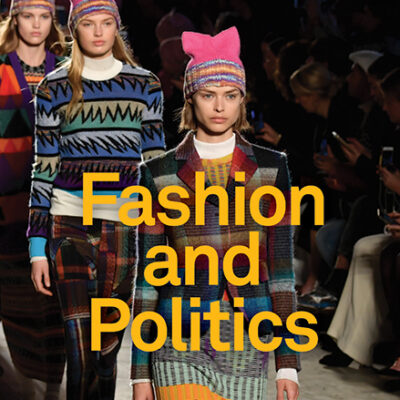
EFHA World 29.05.2022
05.11.2020
conferencecopyrightcultural appropriationefha2020IPRvideo
Some considerations after #efha2020 ‘Is Sharing Always Caring?’
The EFHA 2020 Symposium ‘Is Sharing Always Caring?’ took place at the beginning of this week, but surely gave us material to reflect upon for months to come. The symposium aimed at analysing the tension between the urge to make collections available online and the need to respect cultural rights and values, dedicating one day to the benefits and challenges of the so-called “Open Culture”, and the other to issues of appropriation within the system, from ideation of fashion objects to the management and classification of fashion heritage.
The first day saw the participation of Evelyn Heidel and Brigitte Vézina from Creative Commons, Ariadna Matas from Europeana Foundation and Andrea Wallace from University of Exeter: each of them provided intellectual and practical tools to better understand the importance of digitising and opening up collection, the relevance of international and standardised licensing system and terminology, the role of users in this ‘digital turn’ and the policies available to make a respectful re-use of what has been made available. The following discussion actively engaged with the audience, whose questions were brought to the floor by Marco Rendina and Prodromos Tsavios, who also engaged in an interesting conversation on the definition of ‘open access’ and the possible ways to rethink the term in light of the most current needs and practices.
The workshop that came after was the occasion to actively engage with fashion heritage material from the Europeana database, allowing the group to further discuss, case by case, the questions to ask for each different artefact – of course, in its digital form – in order to assess and clearly attribute the right license information.
The second day shaped as a discussion on the awareness needed in dealing with fashion and fashion objects especially in relation with the complex and timely issues of appropriation and misrepresentation. Monica Moisin, Hazel Clark, Camille Callison and Janice Deul nuanced the understanding of the dynamic between research, inspiration, creation and production, presenting good practices from the past and proposing ways of moving forward that could redefine the fashion system and allow institutions to fulfil their educational role. Right after these four diverse and inspiring presentations, the roundtable saw the participation also of three more convenors: Filep Motwary, Eva Losada and Andreea Diana Tanasescu.
During the roundtable, each convenor embodied a different ‘side’ of the fashion system, intended as a complex territory encompassing many professions and views, and this variety is probably what made the discussion so vivid and interesting, for the participants as well as for the audience. The discussion started addressing practices of image making and editing, and the way in which fashion imaginaries have recently changed to become more inclusive and respectful of the different identities they come to represent. Creativity – intended as a way of making something new, and also making something visible, served as a link to reflect on “activism” as a common position that curators, researchers, designers and image-makers alike.
All the convenors agreed that fashion’s cultural productions are a fundamental tool to educate and learn, and this is why we have to manage them carefully and imply them in our contemporary understanding of society at large. Fashion is part of our everyday, is a trace we leave behind, is a way of shaping and asserting our identity and, ultimately, is a gateway into the understanding of our culture. Considering fashion, and more precisely fashion heritage in its complexity, as a set of artefacts belonging to particular chronologies and geographies, is a way of reconsidering established – and often, outdated – historiographies.
As much as we managed to touch on a variety of topics related to the two main focuses of the symposium – as well as deciding that yes, sharing is caring, if done in the right way – we are sure the conversation has just begun. We cannot wait to see how this path will shape, and we are keen on being actively involved in the next steps. While we plan the next event, which might not be too far off, enjoy the recordings of the #EFHA2020 symposium on our Vimeo channel (Day 1 and Day 2) and get in touch with us for any question, doubt or suggestion.